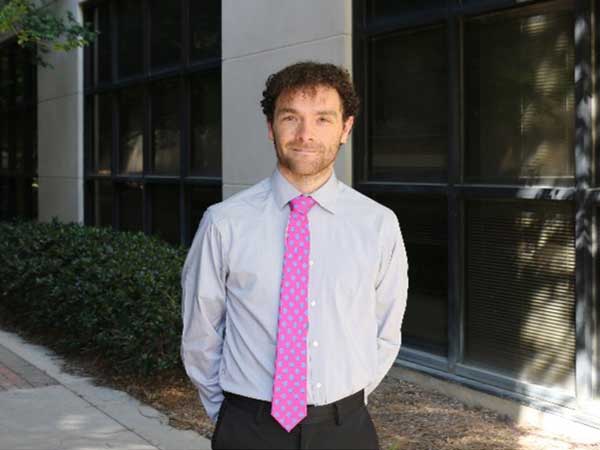Degrees and graduation years: BS in Applied Mathematics and Scientific Computation, UAB 2017. MS in Biostatistics, UAB 2020. PhD in Biostatistics, UAB 2023
 Q: Which program within the Department of Biostatistics are you currently enrolled?
Q: Which program within the Department of Biostatistics are you currently enrolled?
T32 participant and PhD, Summer 2023 Graduation.
Q: Tell us a little bit about yourself and why you chose to study Public Health.
I grew up in Pell City, Alabama. My grandparents and father had an unworldly amount of health conditions, to the point where I consider my siblings and I's procreation a crime. Familial Lupus, Parkinson's, rheumatoid arthritis, herniated discs, hereditary neutropenia, and my mom developed a rare form of pityriasis only found in teenage boys, so my family was forced to learn about medicine and health from the beginning. I chose UAB because it was close to home, and initially enrolled as an undergraduate in 2013 planning to attend medical school. After my first year, I abandoned my interests in health and changed my major to Applied Mathematics, which I was good at, hoping that after graduating I would find work as an actuary or mathematician. I graduated in 2017 with my bachelor’s degree and after struggling to find a job, I decided to pursue graduate school.
Q: Why did you chose to study Biostatistics?
I started my graduate program search with UAB because I was familiar with the campus, it is close to home, and there are a ton of health-related degree programs. I had no idea Biostatistics existed until I saw the degree program listed on UAB's website. I started reading into what Biostatistics does and found that it used what I was good at, statistics and math, and applied it to health data. So, I applied for UAB's Biostatistics program, did not even bother applying anywhere else. And now here I am 10 years later, after initially refusing to stay in school for 10 more years, still in a degree program at UAB.
Q: Is there a faculty member who has made an impact on your academic journey during your time at UAB?
Dr. Leann Long has been my mentor since 2019. Her Categorical Data Analysis Course consisted of the longest assignments I've ever had to complete, but I left the class with more knowledge than any class before. I think that class was the most beneficial towards my success on the qualifying exam. As a mentor, Dr. Long is probably perfect for me. I have a very nonchalant, some may say careless, attitude towards life. Without proper guidance I would likely only accomplish enough to get by. But, Dr. Long responded to my attitude by ensuring that I never ran out of tasks to finish. I leave meetings with Dr. Long with a list of tasks to accomplish and that has really helped make my graduate career more successful.
Q: Tell us about any interesting projects or organizations you were a part of while at UAB.
I was a graduate research assistant for Dr. Burel Goodin in Psychology looking at disparities in pain perception among individuals with chronic low back pain. I was involved in first-hand data collection which included administering pain tests on patients. I've garnered a lot of fun stories from meeting participants and inflicting pain upon them. The other personnel involved in this study were all fantastic as well and we continue to work together to produce worthy publications. Being so heavily involved in study procedures and basically being the one monitoring the database was not something I expected from a research assistantship, but it was an opportunity I am thankful for. I was previously a senator for the Public Health Student Association and a coordinator for the Cardiovascular Disease Journal Club. In 2022 I founded the Biostats Student Organization and became the first president of the organization striving to establish social, mentoring, and research relationships amongst students in the Department of Biostatistics.
Apply for the Pre-doctoral T32 Program in Biostatistics and Epidemiology:
Andrew Sims was the first trainee in the UAB’s Cardiovascular Disease Pre-doctoral T32 Program in Biostatistics and Epidemiology. The Ruth L. Kirschstein National Research Service Award (NRSA) provides Stipends, health insurance, partial tuition and fees, $1000 in travel funds per year. Interested applicants should visit T32 Program website for more information.